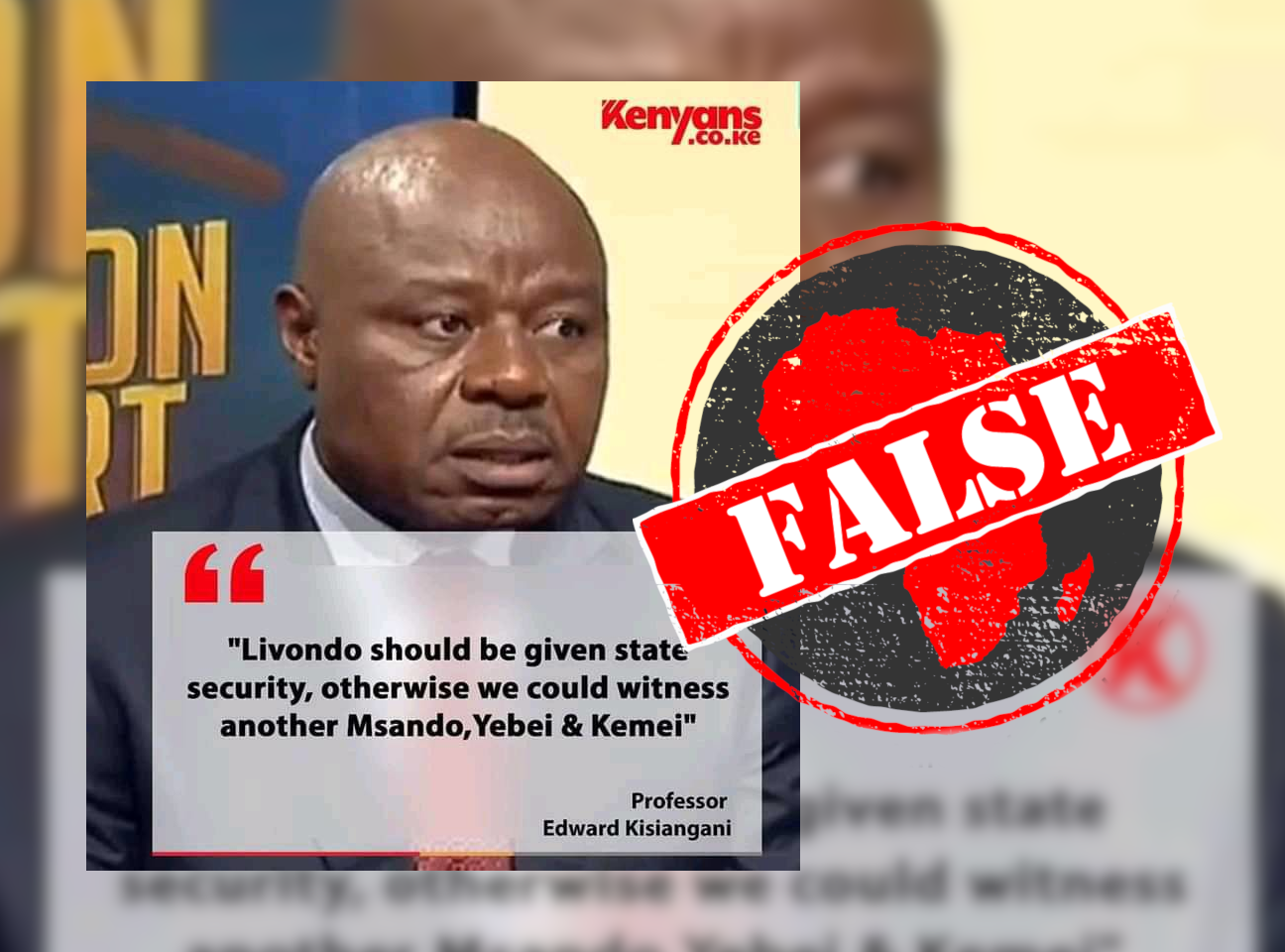A graphic with the logo of the news site Kenyans.co.ke, doing the rounds on Facebook since late February 2022, attributes a controversial quote to Prof Edward Kisiang’ani, a prominent Kenyan political analyst.
“Livondo should be given state security, otherwise we could witness another Msando, Yebei & Kemei,” the quote reads.
On Saturday 19 February, politician Stanley Livondo claimed there had been a plot to assassinate Kenyan president Uhuru Kenyatta. The graphic suggests Kisiang’ani believes Livondo’s own life to be in danger, and that the politician should be given government security protection.
On the following Monday, Livondo appeared at the Directorate of Criminal Investigations to record statements on his claims. The graphic started circulating online soon after.
Meshack Yebei was a witness expected to testify in the International Criminal Court case against current deputy president William Ruto. Chris Msando was a Kenyan electoral official. Kipyegon Kenei was a bodyguard attached to Ruto’s office.
All three were found dead in unclear circumstances – Yebei in 2015, Msando in 2017 and Kenei in 2020.
But did Kisiang’ani really say this, and did Kenyans.co.ke report it? We checked.

‘Multiple checks to prevent misreporting’
On 22 February Kenyans.co.ke posted the graphic – stamped “FAKE” – on its verified Facebook page.
They wrote: “This post did not emanate from our media house. It does not conform to the in-house branding rules and did not go through the multiple approval checks set in place to prevent misreporting. We, therefore, flag it as FAKE.”
Republish our content for free
For publishers: what to do if your post is rated false
A fact-checker has rated your Facebook or Instagram post as “false”, “altered”, “partly false” or “missing context”. This could have serious consequences. What do you do?
Click on our guide for the steps you should follow.
Publishers guideAfrica Check teams up with Facebook
Africa Check is a partner in Meta's third-party fact-checking programme to help stop the spread of false information on social media.
The content we rate as “false” will be downgraded on Facebook and Instagram. This means fewer people will see it.
You can also help identify false information on Facebook. This guide explains how.





Add new comment